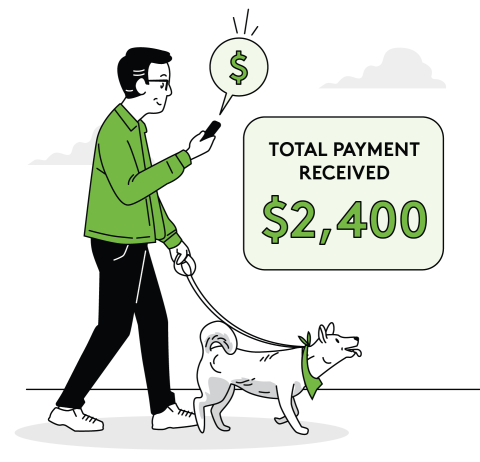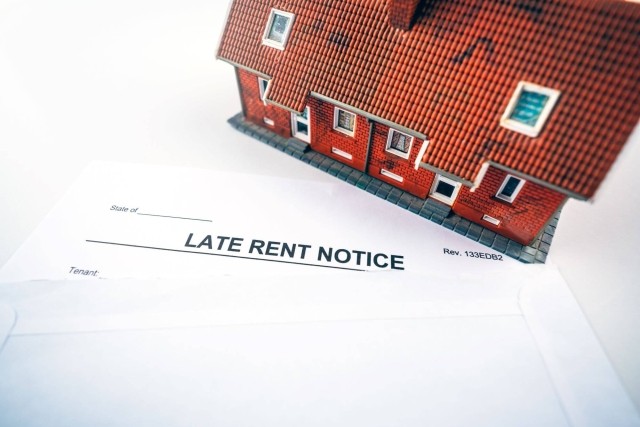
Key Takeaways
- Using an unsecured online rent collection system can expose you and your tenants to identity theft and damage your reputation as a landlord.
- Key features to look for include end-to-end encryption, two-factor authentication, identity verification, compliance with data privacy laws and industry standards, secure data storage, and fraud monitoring tools.
- Apartments.com’s built-in rent collection platform is secure and easy to use, making your job easier without cutting corners.
As digital payments become the norm, more landlords are turning to online platforms to collect rent. The benefits are clear: it’s fast, convenient, and automates tedious bookkeeping.
But with that convenience comes risk. Cybersecurity breaches, fraud, and data privacy violations can turn a simple transaction into a legal and financial headache. Understanding the core security measures of rent collection is essential to protect you and your tenants.
Why Security Matters in Online Rent Collection
Rent payments are high-value transactions, making them a prime target for cybercriminals. A compromised rent payment system can lead to data breaches that could expose personal and financial information. This makes you and your tenant vulnerable to fraudulent credit card charges or unauthorized bank withdrawals.
How you collect rent also reflects on your professionalism as a landlord. Using an unsecured online payment system not only puts you and your tenant at risk for identity theft, but it can also damage your reputation if something goes wrong.
Key Security Features to Look For
Here are some features to look for when evaluating an online rent collection platform.
End-to-end encryption
Ensure the platform uses end-to-end encryption (E2EE) both in transit and at rest. This protects payment details, personal information, and banking credentials from hackers by scrambling sensitive data into unreadable code.
Two-factor authentication

Two-factor authentication, sometimes shortened to 2FA, is a security method that requires users to provide two forms of verification to log into an account. This is typically seen with authentication codes sent to a user’s mobile device after they input their username and password.
Two-factor authentication provides an extra layer of security that prevents unauthorized users from accessing an account even if a user’s login information has been compromised. This is especially important for sites that store users’ banking information, like with online rent collection platforms.
Verified identity for all users
Rent platforms should authenticate both landlords and tenants before enabling any transactions. This step ensures that only legitimate users are involved, helping prevent fraud, impersonation, or fake tenant accounts. Platforms that require identity verification such as linking to a bank account, government-issued ID, or employer verification offer an added layer of trust for both parties.
Regulatory compliance
A trustworthy rent collection platform must follow relevant industry standards and legal guidelines. Look for platforms that are PCI DSS compliant for credit or debit card transactions, adherent to ACH regulations for direct bank transfers, and compliant with data privacy laws, like the California Consumer Privacy Act (CCPA) or similar state legislation.
Make sure the platform includes proper disclosures and tenant consent forms regarding how their data will be used, stored, and protected.
Secure data storage
Sensitive information such as bank details, Social Security numbers, and lease documents should be securely stored in encrypted databases, not on your personal device or in unsecured cloud storage. Access to viewing or changing this data should also be limited to authorized users.
Fraud monitoring tools

Choose a platform that monitors payment activity for unusual behaviors like duplicate transactions, sudden changes in payment sources, or multiple failed login attempts. Systems that notify you immediately of these red flags help prevent losses before they escalate.
Legal and Regulatory Considerations
Collecting rent online is also about ensuring compliance with local, state, and federal laws. While specific regulations vary depending on where you live, here are some general guidelines to keep in mind.
Tenant consent is key
Include a clause in your lease agreement that outlines your chosen rent collection method and how data will be handled.
Understand your legal obligations
If you’re handling tenant information, you may need to comply with state-specific privacy laws. Failing to do so can open you up to legal liabilities.
Keep secure records
Store receipts, payment confirmations, and communication logs securely for at least the duration of the lease.
Best Practices for Secure Rent Collection
Here are some extra ways you can protect yourself and your tenants from cybercriminals.
Use secure devices and networks
Avoid accessing your rent collection dashboard on public Wi-Fi. Keep your computer or mobile device updated with antivirus protection and system updates that prevent cybercriminals from accessing your data.
Educate tenants
Help tenants understand how to safely submit payments, spot phishing scams, and navigate your chosen payment platform.
Monitor transactions
Regularly review your dashboard and bank account for irregularities and notify tenants of data breaches immediately. Set up fraud alerts with your bank and credit card company to help you catch unusual activity.
Have a contingency plan
Create a backup plan in case your rent collection system experiences a breach. Explain to your tenants how they can submit rent payments if your online platform is out of commission, keep copies of payment logs, and know how to contact your platform’s support team.
Collect Rent Online with Apartments.com
Apartments.com offers a secure, built-in rent collection platform designed specifically for landlords. It includes data encryption, identity verification, and real-time payment tracking all in one place.
Ready to protect your rent payments? Apartments.com’s built-in rent collection tool is safe, secure, and easy to use, making your job easier without cutting corners. Protect your rental income and streamline your workflow with tools that put security first. Prioritizing cybersecurity today can save you from expensive problems tomorrow.
FAQs
Can I use a payment app like Venmo or PayPal to collect rent?
You can, but it’s not the best option. These apps weren’t designed for rental payments and offer little to no protection in disputes or fraud cases. Besides, it can be hard to keep track of rent payments on a payment app not designed for landlords.
Is collecting rent online legal in all states?
Yes, online rent collection is legal in all 50 states. However, tenants must consent to paying rent online, and you must comply with state-specific data privacy and financial transaction laws.











